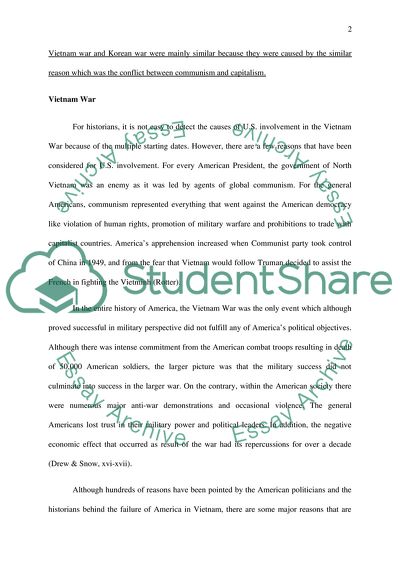Cite this document
(Reasons for the Korean and Vietnam Wars Essay Example | Topics and Well Written Essays - 1750 words, n.d.)
Reasons for the Korean and Vietnam Wars Essay Example | Topics and Well Written Essays - 1750 words. https://studentshare.org/history/1863734-comparison-and-contrast-of-korean-war-and-vietnam-war
Reasons for the Korean and Vietnam Wars Essay Example | Topics and Well Written Essays - 1750 words. https://studentshare.org/history/1863734-comparison-and-contrast-of-korean-war-and-vietnam-war
(Reasons for the Korean and Vietnam Wars Essay Example | Topics and Well Written Essays - 1750 Words)
Reasons for the Korean and Vietnam Wars Essay Example | Topics and Well Written Essays - 1750 Words. https://studentshare.org/history/1863734-comparison-and-contrast-of-korean-war-and-vietnam-war.
Reasons for the Korean and Vietnam Wars Essay Example | Topics and Well Written Essays - 1750 Words. https://studentshare.org/history/1863734-comparison-and-contrast-of-korean-war-and-vietnam-war.
“Reasons for the Korean and Vietnam Wars Essay Example | Topics and Well Written Essays - 1750 Words”. https://studentshare.org/history/1863734-comparison-and-contrast-of-korean-war-and-vietnam-war.


